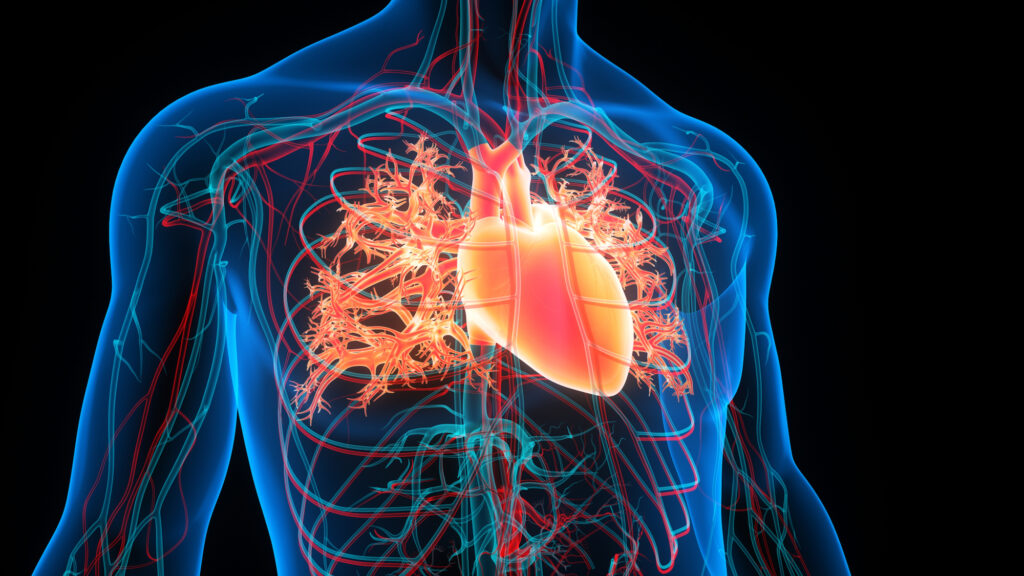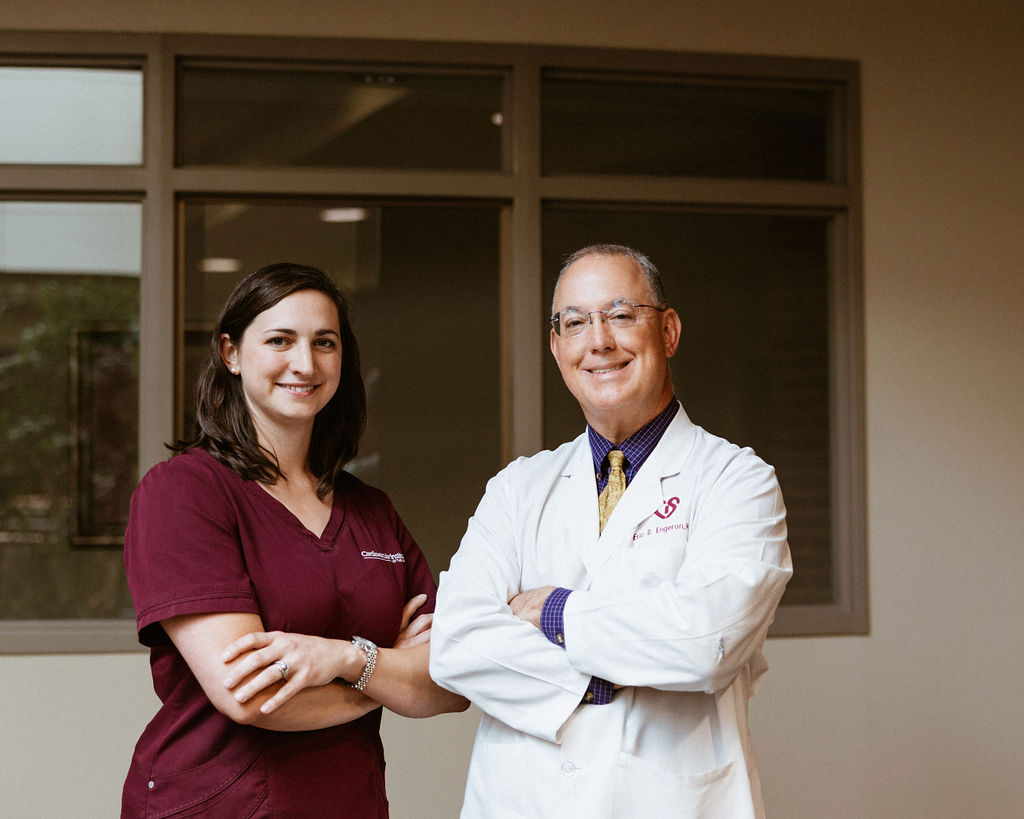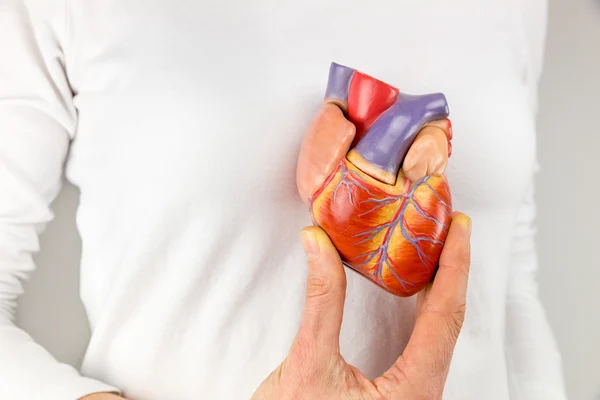Congestive heart failure (CHF) is a serious and chronic condition that occurs when the heart becomes weak or damaged. This results in an inability to efficiently pump blood to the rest of the body. As the kidneys receive less blood, they are able to filter out less fluid. In turn, the body begins to retain this fluid. This fluid may build up in the lower limbs, in the abdomen, around the liver, and around the lungs. This “congestion” of fluid gives CHF its name.
What are the types and stages of congestive heart failure, and what are your treatment options? Let’s discuss the signs and symptoms of CHF and what aid you can find at Cardiovascular Institute of the South.
What Are the Different Types of Congestive Heart Failure?
Heart failure can occur on the left side of the heart, the right side, or both. Most commonly, it begins in the heart’s primary pumping chamber: the left ventricle. Each specific type of CHF has its own characteristics.
Right-Sided Congestive Heart Failure
- Right-sided CHF develops when the right ventricle struggles to deliver blood to the lungs.
- As blood backs up into the blood vessels, the body begins to retain fluid in the abdomen and lower body.
- Aside from this swelling, patients may also experience shortness of breath among their symptoms.
Biventricular Congestive Heart Failure
- This condition is a combination of both left- and right-sided heart failure.
- When damage expands and impacts both sides of the heart, patients can experience swelling and shortness of breath.
Left-Sided Congestive Heart Failure
- Left-sided CHF is the most common form of CHF and begins when the left ventricle cannot effectively pump blood throughout the body.
- Eventually, this can lead to fluid retention, particularly around the lungs.
- Common symptoms include swelling, trouble breathing, and coughing.
Left-Sided Sub-Types
Cases of left-sided CHF can be further classified into one of two sub-types, characterized by the manner in which the ventricle is affected.
Systolic Congestive Heart Failure
- Systolic CHF occurs when the left ventricle is unable to contract with enough force to circulate blood properly.
- As the left ventricle strains to perform, it can thin and weaken.
- This weakening leads to backward blood flow, fluid buildup, and swelling.
Diastolic Congestive Heart Failure
- Diastolic CHF occurs when the heart muscle becomes stiff.
- The chamber must relax in order to fill with blood between contractions.
- Therefore, this stiffness means that an inadequate amount of blood is available to pump out to the rest of the body.
- This can cause shortness of breath, wheezing, fatigue, irregular heartbeat, and swelling.

What Are the Stages of CHF?
Congestive heart failure affects nearly 6.2 million Americans. This progressive condition can also worsen over time. Depending on the severity of CHF and its associated symptoms, cases are classified into one of four potential categories:
Stage I
Stage I is considered “pre-heart failure.” High-risk individuals include patients with high blood pressure, diabetes, hypertension, metabolic syndrome, and coronary artery disease. A family history of alcohol abuse, rheumatic fever, cardiotoxic drug therapy, or cardiomyopathy can increase your risk.
- There are no notable symptoms that mark this stage of congestive heart failure. Patients in Stage I can typically manage their condition with lifestyle modifications.
- Those who smoke, drink alcohol, or use illegal drugs should discontinue use immediately.
- They should begin a regular exercise regimen, plan healthier meals with vegetables and lean protein, and ask about helpful medication.
Stage II
The second stage of congestive heart failure carries some noticeable symptoms. Most commonly, they appear after physical activity. After exercise or other moderate physical exertion, patients may experience some symptoms.
- Stage II symptoms may include, but are not limited to: heart palpitations, shortness of breath, and fatigue.
- To manage Stage II, patients should follow the same lifestyle changes as Stage I to keep symptoms at bay.
- However, closer monitoring from your healthcare professionals is recommended.
- A coronary artery bypass, valve repair, or valve replacement may also be considered.
Stage III
Stage III marks the beginning of advanced heart failure. Patients have a known diagnosis of systolic heart failure. Like Stage II of CHF, Stage III can be exacerbated by physical activity. However, symptoms are often much more severe.
- Shortness of breath, leg weakness, swelling of the lower body, fatigue, and reduced ability to exercise are all notable signs of this advanced stage.
- In addition to healthy lifestyle changes and medications, it is highly recommended that patients make additional changes such as restricting salt intake, closely monitoring weight, and ending the use of drugs that may inflame their condition.
- In severe cases, biventricular pacing or an implantable defibrillator may be recommended. As with the lower stages of CHF, it is especially important to consult with a cardiologist for the best forms of treatment.
Stage IV
Stage IV is the most advanced stage of heart failure. Patients have known systolic heart failure and advanced symptoms, even with drastic lifestyle changes and the highest level of care.
- While at rest, patients still experience symptoms of breathlessness and fatigue, and physical activity is likely not possible. They may also experience weight gain, swelling of the lower extremities, a dry cough, and a bloated stomach.
- Treatment for Stage IV can be especially serious.
- Patients are still advised to follow strict lifestyle changes, including a balanced diet and exercise regimen where possible; abstaining from drugs, smoking, and alcohol; and taking medications such as enzyme inhibitors and beta-blockers.
- Your cardiologist may also recommend ventricular assist devices, surgical intervention, and intravenous heart pump drugs.
- In especially severe cases, a heart transplant or end-of-life care should be considered.

Congestive Heart Failure FAQs
Let’s discuss some of the most commonly asked questions related to congestive heart failure.
-
What is congestive heart failure?
-
What are the common symptoms of congestive heart failure?
-
What are the main causes of congestive heart failure?
-
How is congestive heart failure diagnosed?
-
What lifestyle changes can help manage congestive heart failure?
-
What medications are commonly prescribed for congestive heart failure?
-
What are the potential complications of congestive heart failure?
-
How often should I follow up with my healthcare provider for congestive heart failure?
-
Are there any warning signs that indicate my congestive heart failure is worsening?
Diagnosing and Treating Congestive Heart Failure in Louisiana
For patients suffering from congestive heart failure, skilled medical treatment is critical to managing the condition and maintaining health. Cardiovascular Institute of the South is home to many renowned and respected cardiologists.
Our physicians are highly qualified in the treatment of congestive heart failure, along with all other forms of cardiovascular disease. From virtual Cardio@Home programs for modifying lifestyle behaviors to Intensive Cardiac Rehab and more, our team is dedicated to helping you find the solutions you need for better cardiovascular health.
We are proud to serve patients with over 20 locations throughout Louisiana and Mississippi. Do you have a family history of heart disease or heart failure? Or would you like to receive an evaluation to understand your current heart health? If so, our experts are ready to help. To request an appointment at any one of our locations, click the button below.
Contact
Contact form description
"*" indicates required fields
